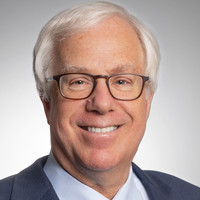Steve Bannon has been one lucky con man, and he is betting that his luck will hold. This week the House Committee investigating the Jan. 6 assault on the Capitol aimed at torpedoing last November's election will vote to hold Bannon in contempt of Congress. The reason: The Committee subpoenaed Bannon to appear and answer questions about what he knew about the assault, and he blew them off. This places him in defiance of a Congressional subpoena, which places him in violation of federal law. Should the Justice Department indict and convict him, Bannon could land in jail for a year.
Bannon, a genuinely bizarre character on a good day, has been a Donald Trump whisperer since he became CEO of Trump's 2016 presidential campaign. He worked in the White House briefly as the then-president's "chief strategist" before being banished and then re-embraced by the famously erratic Trump. In August 2020 he was arrested and charged with a series of felonies, including money laundering and conspiracy to commit fraud. According to the federal indictment, Bannon duped donors into contributing money to build that border wall with Mexico — the one Mexico was going to pay for — and then walked off with about $1 million of their money, lending fresh meaning to "Stop the Steal."
A funny thing happened on the way to Fort Leavenworth, however: Bannon got kissed by a large, orange leprechaun. On Jan. 20, 2021, Trump's last day in office, he pardoned Bannon, undoubtedly because justice required it.
Now Congress wants to know what Bannon knows about Jan. 6, including Trump's role in it. This doesn't seem exactly like a "fishing expedition." Bannon apparently spoke to Trump on Dec. 30, urging him to focus his effort to remain in office despite being voted out of it on stopping Congress from certifying the electoral votes, a certification scheduled to occur on Jan. 6. On Jan. 5, perhaps blessed by a sudden surge of clairvoyance, Bannon told listeners to his podcast "War Room" that "All hell is going to break loose tomorrow."
Bannon's justification for his contempt of Congress was presaged by an interview he gave in 2018. "The real opposition is the media," Bannon explained about journalists' nasty exposure of the manure dispensary that was the Trump White House. "And the way to deal with them is to flood the zone with (expletive)." Bannon's lawyer's letter extending the middle finger to the Committee confirmed that Bannon has retained his flair for (expletive).
Bannon won't answer questions, his lawyer says, because Trump has instructed him not to, referring to Trump's invocation of "executive privilege," one that is patently bogus. The executive privilege doctrine can only be asserted by a sitting president. Even if things appear differently at Mar-a-Lago, here on Planet Earth, Trump isn't one. It only applies to advice given to the president by government officials. At the time of these events, Bannon had been out of government for over three years. The doctrine is only intended to apply to the safeguarding of military, diplomatic or national security secrets. Discussions about orchestrating a coup against the country do not protect Trump's conversations here.
Still, Bannon has reason to believe he will skate, as he has skated before. The Republicans are likely to take back the House. If they do, they will disband the select committee faster than you can say "Hang Mike Pence," nullifying the subpoena served on Bannon. Meanwhile, Bannon will tie up Congress and the Justice Department in court, arguing that he was only following Trump's orders, a kind of Breitbart-meets-Nuremberg defense.
The Supreme Court held long ago that it is all citizens' "unremitting obligation to respond to subpoenas, to respect the dignity of Congress and its committees and to testify fully" when Congress investigates. Bannon has given Congress and the Justice Department no choice but to pursue criminal charges against him, not only to get the truth about Jan. 6 but to attempt to repair the considerable damage Bannon, his compatriots and their master have done to the rule of law.
Jeff Robbins, a former assistant United States attorney and United States delegate to the United Nations Human Rights Council in Geneva, was chief counsel for the minority of the United States Senate Permanent Subcommittee on Investigations. An attorney specializing in the First Amendment, he is a longtime columnist for the Boston Herald, writing on politics, national security, human rights and the Mideast.
Photo credit: USA-Reiseblogger at Pixabay






View Comments